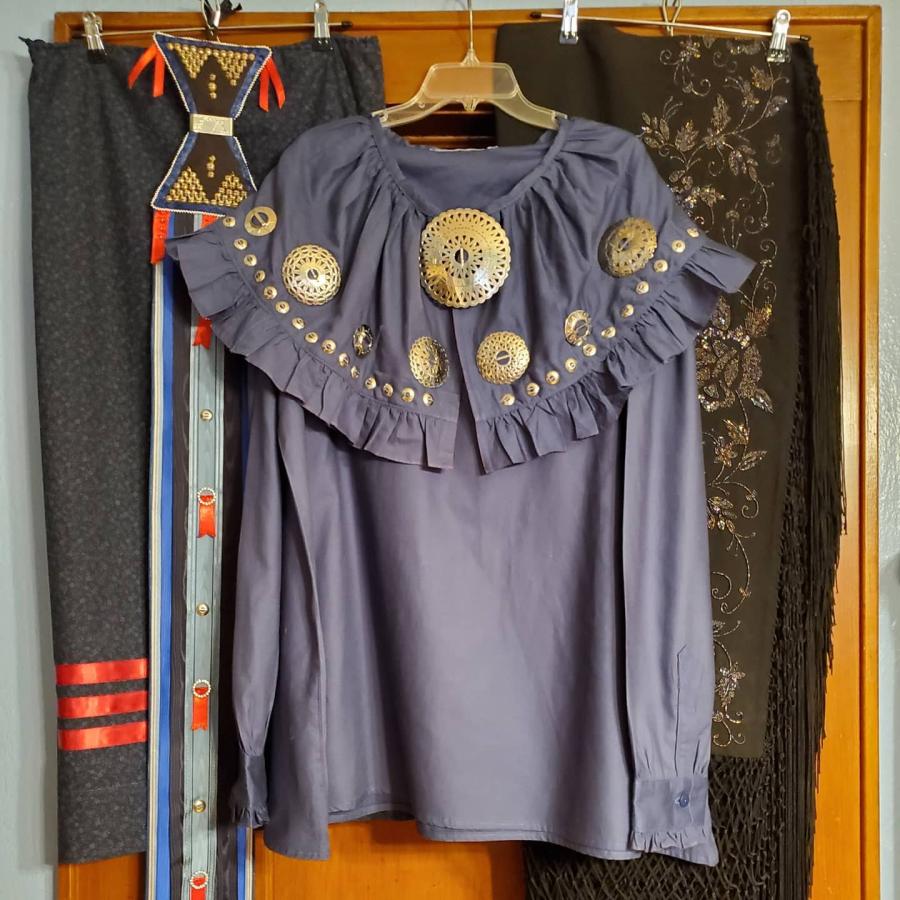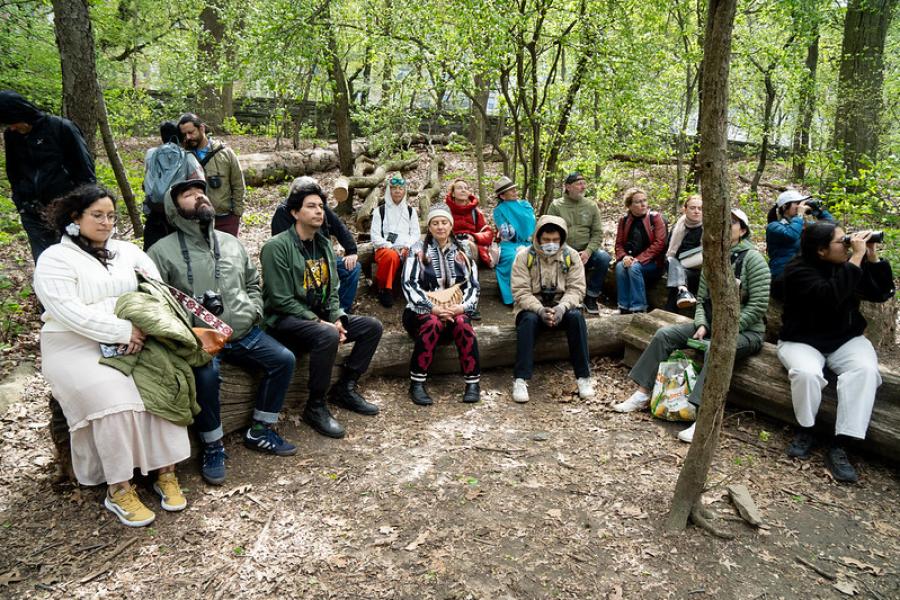Communicating in your native language is undeniably empowering. As we have seen with far too many groups, when you lose the opportunity to speak your native language, you also lose a meaningful connection to your people. It is not only words that disappear, but the knowledge of survival, unique perspectives, culture, and diversity in life (see our Summer, 2001 issue).
In the face of globalization and its resulting monoculture, many cultures are fearful of imminent linguistic and cultural extinction. As 50 percent of the 6,000 existing languages around the world are facing extinction within the next 100 years, this fear is well grounded. I wonder how long we will be able to listen to the fascinating stories of the Diné, Tibetan, Kikuyu, Dinka, Kurdish, Mayan, and Aztec people. These were only some of the peoples represented at Cultural Survival's Spring 2001 student conference, "Voices: The Importance and Challenge of Preserving Endangered Languages," on May 25 at Thompson Island, Massachusetts. There, they shared their stories with approximately 230 participants representing over 35 nations.
One of the indigenous participants called Cultural Survival a few days after the conference to share his appreciation and reflect on the conference's effectiveness and richness. He was pleased with the interest and sensitivity shown by many students. And he added, "I always enjoy working with Cultural Survival because you are dreamers and we need dreamers." It reminded me of a line from a Brazilian folk song: "If you dream alone, it is just a dream. If you dream together, it's reality.''
Understanding each other's viewpoints and problems and taking solid action to tackle obstacles to indigenous rights is essential. It is truer today than ever that we are interconnected; what each person does every day has real effects on people the world over. Just think about the clothes we wear, the foods we eat, and the machines we use; so many of these things originated from other parts of the world. The decisions we make as consumers affect every step along the path these goods take.
We must carry our actions a step further and dig deeper to understand the root causes of the problems faced today. This is what Cultural Survival student conferences are about: creating a platform where indigenous voices and perspectives are expressed and having indigenous and non-indigenous youth exchange their knowledge and experiences to act together for positive change.
The conference was designed as a cultural fair, allowing students to interact in an informal but educational atmosphere.
- Students from Arlington High School presented "What Makes a Good Person the World Over," listing traits considered admirable in different countries, including Korea, Japan, and Germany. Members of the Dinka community from Sudan who attend Arlington High also discussed their experiences of coming to America as refugees.
- Austin Preparatory School students compiled a list of words in American English that are borrowed from other languages.
- Students from Boston High School (all immigrants to the United States) talked about their experiences in English as a Second Language programs and danced to music from their respective cultures.
- Fenway High School students wrote and performed a sketch about students entering a new school where no one can speak their language. They were able to employ many of the languages spoken by the diverse student body.
- Students from Hudson High School presented the "Power of Language'' and employed this theme in writing original poetry.
- Hull High School students discussed "No Place for Hate," a recent anti-racism event at their school.
- Students from Martha's Vineyard presented information on the Martha's Vineyard Heritage Trail, a walk that covers the history of African Americans on the island.
- North Reading High School students shared the results of their research on the Abenaki, a Native American tribe.
- Students from Shackleton School talked about the school's unique style of learning, which involves traveling around North America.
- South Shore Charter School students researched Armenia and one of the teachers discussed her homeland, Catalania. They also displayed photos and told stories about their recent trip to El Salvador.
- Members of The Urban League of Rhode Island compiled a list of the numerous languages spoken in the nation's smallest state.
Members of many indigenous communities set up tables at the cultural fair. Kurdish speakers discussed the difficulties facing the Kurdish population, the world's largest linguistic group with no recognized sovereignty (see Kani Xulam's article, this issue).
A Mayan representative from the Consejo Maya de Desarrollo de Cantel (Mayan Council of Development of Cantel) in Guatemala had a table set with Mayan woven cloth, books, and music.
Community members from the Diné (Navajo) nation covered their table with a woven wool blanket, a written example of their language, and turquoise and silver jewelry made by one participant's mother. Conference participants were also encouraged to card wool brought from sheep owned by Dine community members.
The Tibetan community representative brought photos of Tibet's landscape and people, as well as a wall hanging that depicts Buddhist deities and a book of love poems written by a former Dalai Lama.
The cultural fair also featured performances and storytelling by Brother Blue of Boston and Lovesidea Mburu of Kenya, as well as the traditional Aztec drumming of Raul Ruiz of Danza Azteca Cuauhtemoc.
We would like to thank all the participants for adding to the knowledge and energy we share. With education, attitudes will change. We have much to learn from each other.
Article copyright Cultural Survival, Inc.



